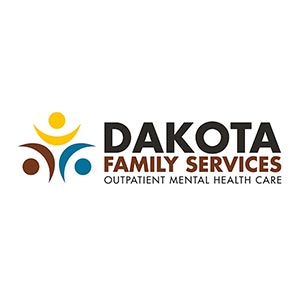When you have a friend or loved one struggling with depression it can be difficult to know what to say, what not to say, and how to help. While you can’t “cure” them, you can be supportive and help them to not feel so alone.
The first step is to understand depression. According to the Mayo Clinic,
“Depression is a mood disorder that causes a persistent feeling of sadness and loss of interest. It affects how you feel, think, and behave and can lead to a variety of emotional and physical problems. You may have trouble doing normal day-to-day activities, and sometimes you may feel as if life isn’t worth living.”
You can’t “snap out of” depression and it often requires long-term treatment. The good news: most people feel better with medication and/or psychotherapy. As a supportive friend of someone with depression, you can make sure they get the help they need.
1) Watch for the Signs
The signs and symptoms of depression vary from person to person, but there are some things to watch for, including a general sense or feeling of sadness and a loss of interest in things they may have previously enjoyed. Many people have trouble sleeping, or sleep all the time, and experience an overall lack of energy throughout the day. Another less talked about symptom, especially for teens and adolescents, is increased irritability and anger. Another symptom of depression, one that tends to scare people, is the presence of suicidal thoughts or suicide attempts. Suicide continues to be the second leading cause of death for children, adolescents, and young adults between the ages of 15 and 24 years old. Luckily, there are things we can do to support friends and loved ones who are struggling with depression. Here are some more specific signs of mental illness in children and adolescents.
2) Share Your Concerns
If you are worried someone in your life is suffering from depression, share your concerns with them. Telling your friend you are worried about them won’t make them more depressed, and it’ll go a long way towards letting them know someone cares. If you aren’t comfortable talking to them, tell a trusted adult.
3) Check on Them
If you know someone is struggling with depression, don’t be afraid to check in on them. Depression often causes people to withdraw and isolate. You may notice that your friend isn’t reaching out to you as much, or they start avoiding social activities. Reaching out gives them the chance to make a connection and feel supported. Don’t be discouraged or take it personally if they don’t get back to you right away. It may take time for them to feel ready to talk. Even if you don’t hear from them, continue reaching out, just to let them know you care. A supportive text might be easier for them to respond to than a phone call.
4) Spend Time with Them
Invite your friend to do something simple and non-threatening—meet for coffee, go for a walk, go out to dinner, etc. This is a perfect opportunity for you to see they are safe, and to help them break a pattern of isolation or withdrawal. Social connection in any form can often have profound positive effects on someone's mental health.
Spending time with a person can temporarily alleviate some of their symptoms, and help them feel cared for and connected. Inviting your friend or loved one to activities won’t cure their depression, but it can temporarily bring a sense of relief or happiness. Don’t be discouraged or upset if they turn down invitations or attend once and decline the rest. Depression can be very difficult and it’s about trying to be understanding and supportive.
One woman said the best thing a friend ever did when she was depressed was to just sit with her. “She said she would come and that I didn’t have to entertain her or even talk. She just wanted to be there. She came to my house and sat with me the entire afternoon. I napped while she read a book, and then we watched a movie together. It’s the nicest and most helpful thing anyone has ever done for me.”
5) Avoid Judgement
Many people struggling with depression don’t seek help from loved ones because they are afraid of being judged. And frankly, it’s hard not to judge when it seems so simple—just get up and do something! Remember depression can happen to anyone and many of the people in our lives have probably experienced depressive feelings and symptoms at some point. Casting judgment will only increase your friend’s feelings of shame—reinforcing the idea that something is wrong with them and they shouldn’t seek help.
6) Encourage Them to Get Help
Depression is treatable. Therapy is proven to help alleviate overall symptoms of depression and can help people develop healthy coping skills. Therapy gives people a safe space to be open and honest about their struggles without feeling judged or embarrassed. Therapy is also a good way for people to learn about depression and how it personally affects them.
Medication is also an option and is most effective when combined with therapy. Encourage your friend to consult with their primary care physician or a psychiatrist to explore the potential benefits of medication. Medications have been shown to reduce the symptoms of depression, but not everyone is comfortable taking them. Your friend can choose the services they would like to explore based on what is right for them.
Worried about someone in your life? There are many things you can do to assist, but most start with a simple conversation to check in and offer support.



